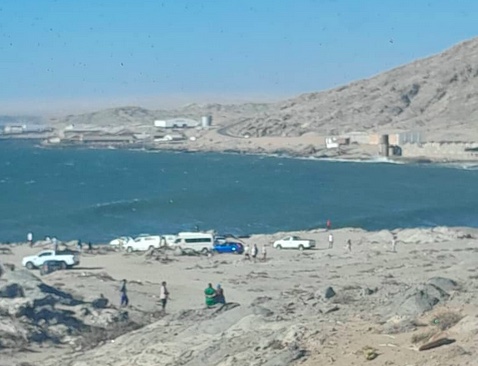The Namibian Organic Association (NOA), which is opposed to the use of chemicals in agriculture, has called for a permanent moratorium on exploration and mining activities for uranium in the Stampriet Transboundary Aquifer System.
The association which is made up of farmers, consumers and traders of organic goods, wrote an open letter to the government and its institutions, signed by board chairperson Mareike Voigts, vice chairperson Eckhart Foertsch and secretary Vera Corry.
“We are deeply concerned over the aggressive push to mine uranium from the Stampriet Transboundary Aquifer System, a source of the finest quality drinking water for tens of thousands of Namibians as well as citizens of Botswana and South Africa.
“This aquifer further provides essential drinking water for hundreds of thousands of animals across large tracts of land and irrigates crops that feed Namibians well beyond the south-eastern parts of the country where the aquifer is located,” the association says in the letter.
Voigts, who took over the chair three months ago, says the association wants to protect the only first-rate water source available to farmers in the southern part of the country.
She says the association is against efforts by Headsprings Investments, a subsidiary of the Russian company Rosatom, to mine uranium using the in-situ leaching process, where sulphuric acid dissolves uranium and other heavy metals from the ore body located within the Stampriet Transboundary Aquifer System.
“While the uranium is removed, other heavy metals stay suspended for extended periods of time, thus contaminating the water body for years to come,” says the association, adding that dissolved toxic heavy metals in water cannot be seen, tasted or smelled, yet they are known to be “detrimental to health, including causing cancers and even death”, Voigts says.
This comes a few weeks after the Stampriet Aquifer Uranium Mining Association (Sauma) also wrote an open letter, warning the government about a national catastrophe, including litigation, should full-scale in-situ leach mining be allowed in the area.
Sauma, which is affiliated to the Namibia Agricultural Union (NAU), has been fighting uranium mining in the Stampriet basin and highlighted the risks posed by the proposed in-situ leach mining of uranium in the basin in the south-east of Namibia by Russian company Headsprings Investments.
The association says there is a risk of uranium-rich mine solution spreading outside the underground mining area, resulting in groundwater contamination.
“It is impossible to trace where the leaked mine solution flows,” Sauma argues.
The association further called on all Namibian citizens to join the growing movement to stop exploration and mining for uranium within the Stampriet Transboundary Aquifer System by signing a petition and form as posted by Sauma on their website.
“We feel that any risk of contaminating drinking water is irresponsible and not acceptable.
Thus we call on the Namibian government and its institutions for a permanent moratorium on all activities that consider or promote the mining of uranium within the greater area served by the Stampriet Transboundary Aquifer System.
“Pollution of the water in the neighbouring countries due to in-situ leach mining in Namibia could lead to international litigation and huge compensatory expenses for the Namibian government,” Sauma warned.
“NOA understands the concept and importance of healthy drinking water for humans, animals and plants alike.
Without water there will be no life! Let’s join hands and stand together,” the mining association said.
– email: matthew@namibian.com.na
Stay informed with The Namibian – your source for credible journalism. Get in-depth reporting and opinions for
only N$85 a month. Invest in journalism, invest in democracy –
Subscribe Now!








